Is wheat bad for you? That’s a complicated question. It’s not as cut-and-dry as a quick trip to the doctor for a test for celiac disease. In fact, tests for celiac disease and gluten sensitivity are notoriously imprecise.
I’ve challenged individuals to try giving up wheat for a few months to see if it helps with their…
inflammation
achey joints
psoriasis
PMS
…and the list goes on and on!
Often what I hear in response is, “BUT I don’t have any stomach problems.”
Friends, problems with wheat, especially modern wheat, goes further than tummy aches! So why should you consider deleting the wheat?
The vast majority of individuals who are sensitive to wheat do not exhibit any intestinal problems. Yet when they cut wheat out of their diets, they experience improvement: better mood, less PMS, clearer skin, less fatigue, clearer thinking.
Those who struggle with autoimmune diseases or mental disorders often see improvement, migraines subside, eczema and psoriasis improve, joint pain decreases, and the list of improvements goes on and on.
Looking for gluten-free resources? This Everything Gluten Free page is a library of everything gluten free we’ve worked on.
Why Wheat Bad for You: Anti-Nutrients in Wheat
There are several anti-nutrients that are found in wheat. What are anti-nutrients? Anti-nutrients are any substance, synthetic or natural, which disrupts and interferes with proper nutrient absorption.
1. Lectins: Causing Leaky Gut
Lectins are mild toxins which are found in wheat. They’re basically like a plants built-in pesticide—one of the ways a plant protects itself. Lectins aren’t broken down in your gastro-intestinal system but bind to receptors in your intestinal walls.1 This allows the lectins and also undigested food particles to leech into your blood stream (i.e. “leaky gut”). Yes. Poop gets into your blood.
When undigested particles are entering your blood stream, this is bad, as you might guess. Really bad. Why? Because your immune system mounts up an attack. These attacks can eventually be, at least partially, responsible for the development of autoimmune disease.2
On top of this, lectins are also implicated in causing leptin resistance which leads to weight gain, sleep disturbances, and a host of other problems.3 Now, you’re not probably going to be able to completely eliminate lectins from your diet. They are present in a lot (and I mean a lot) of foods, but you can decrease your consumption of them by cutting the biggest offenders (i.e. those with massive quantities of lectin), wheat being one of them.
2. Gluten: Not Just a Celiac Problem
Another reason for why is wheat bad for you revolves around gluten. Gluten has become quite a buzz word lately. Gluten is made up of the two proteins: gliadin and glutenin. It’s the glue that holds your bread together and gives it it’s elastic properties. For the 1% of individuals in the United States which have celiac disease, this is the protein that causes a major problem.Celiac disease is just one outcome of being intolerant of gluten, however.4
It used to be that doctors would only admit gluten was causing a problem if you had a positive biopsy showing damaged intestinal villi. The problem with this is a biopsy is only examining a very small part of the intestines. There very likely may be intestinal damage which is not in the area which was not biopsied.
Celiac disease is on the rise—a 400% increase in just 50 years.5 We don’t really know how many people suffer from non-celiac gluten sensitivity, but it’s likely a high number. Some doctors and researchers say they suspect everyone suffers from at least a small degree of gluten sensitivity.
Why is gluten a problem for most (or all people)? Because gliadin (one of the gluten proteins) universally (in everyone) causes zonulin to be released. Now you’re thinking, “What in the world is zonulin?” Zonulin is what regulates how permeable our intestinal wall is. The more zonulin present, the more permeable your intestinal wall becomes.
In other words, both lectins and gluten can cause problems with leaky gut. It’s imperative that individuals suffering from celiac disease avoid gluten. But it’s also important that those who suffer from non-celiac gluten sensitivity also avoid gluten (yeah, that means probably most everyone).
3. Phytates: Robbing You of Vitamins and Minerals
Last, but not least, are phytates. Phytates cause minerals to be bio-unavailable. That means, when phytates are around, it makes it much more difficult for your body to utilize the vitamins and minerals that are present.6
They do this in two ways, they binds up minerals and prevent them from being properly absorbed. Another interesting tidbit, is that phytates are also associated with increased tooth decay. So much so that anthropologists use the level of tooth decay to determine whether a society was agricultural or a hunter/gatherer society.7
Why Go Wheat-Free?
When our family went wheat-free, we had many questions from friends and family. This is the heart behind our book, Weeding Out Wheat. In the book you’ll learn more about the harmful effects of wheat on the body based on current medical research. You’ll also learn about how, as Christians, we’ve reconciled our wheat-free lifestyles while reading a bread-filled Bible.
Weeding Out Wheat is available in our online store for $9.95. It is also available on Kindle and paperback from Amazon.
More Information…
For more information about wheat, check out our other articles:
- Could Wheat be Destroying Your Thyroid?
- Is “Gluten-Free” Biblical? Wheat and Bread in the Bible
- 10 Great Resources to Help You Got Wheat Free
- 5 Ways Modern Wheat is Different Than Biblical Wheat
- Gluten-Free Guide for Beginners
Sources
- Do dietary lectins cause disease? The evidence is suggestive—and raises interesting possibilities for treatment
- Do dietary lectins cause disease? The evidence is suggestive—and raises interesting possibilities for treatment
- Agrarian diet and diseases of affluence – Do evolutionary novel dietary lectins cause leptin resistance?
- Is gliadin really safe for non‐coeliac individuals? Production of interleukin 15 in biopsy culture from non‐coeliac individuals challenged with gliadin peptides; Gluten causes gastrointestinal symptoms in subjects without celiac disease: a double-blind randomized placebo-controlled trial; Spectrum of gluten-related disorders: consensus on new nomenclature and classification
- Rubio-Tapia A, Kyle RA, Kaplan EL, Johnson DR, Page W, Erdtmann F, Brantner TL, Kim WR, Phelps TK, Lahr BD, Zinsmeister AR, Melton LJ 3rd, Murray JA. “Increased prevalence and mortality in undiagnosed celiac disease.” Gastroenterology. 2009 Jul;137(1):88-93)
- Nondigestible Carbohydrates and Mineral Bioavailability
- Epidemiology of Dental Disease

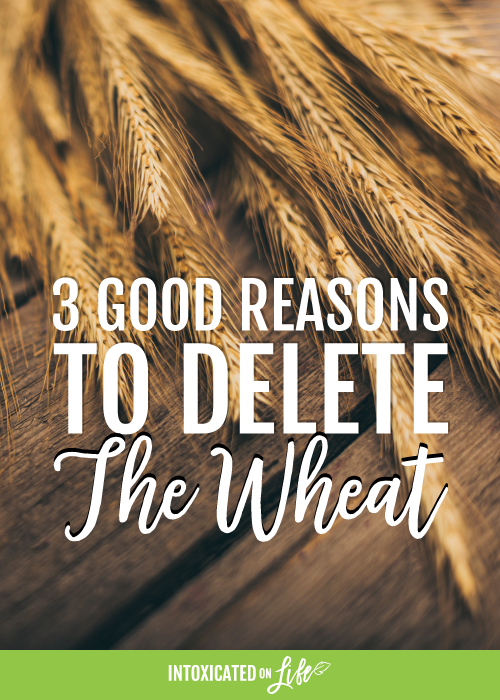
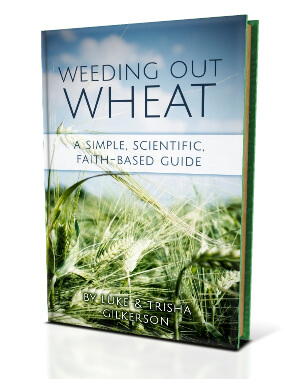
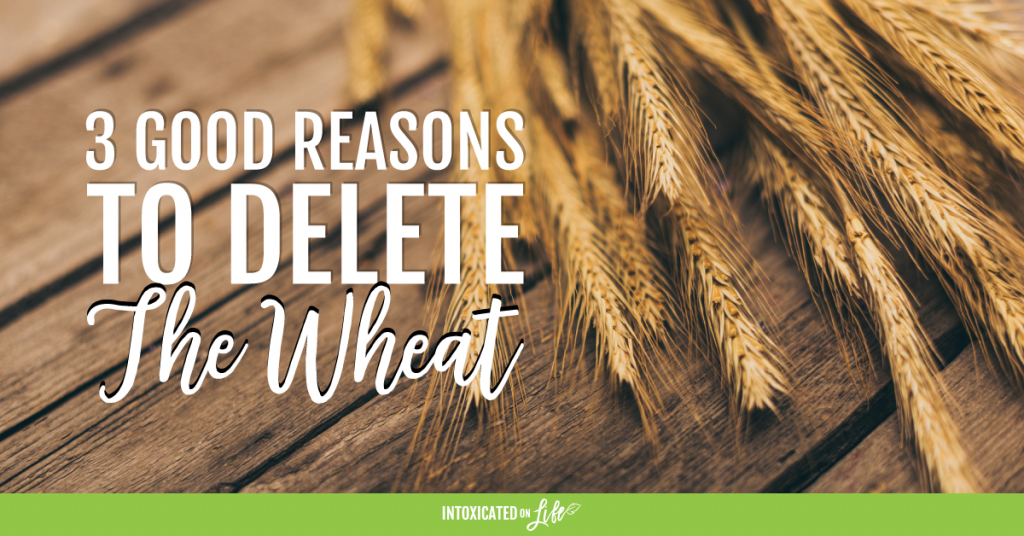
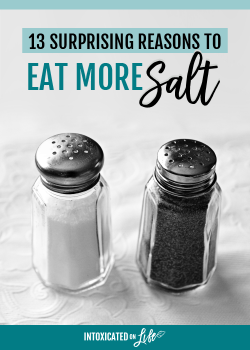
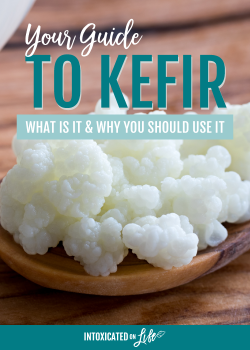
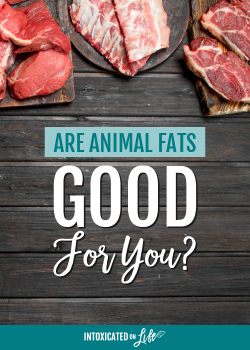
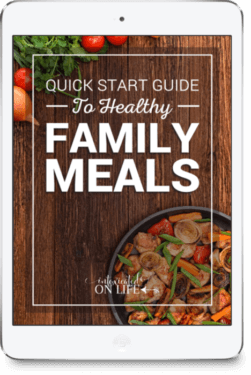
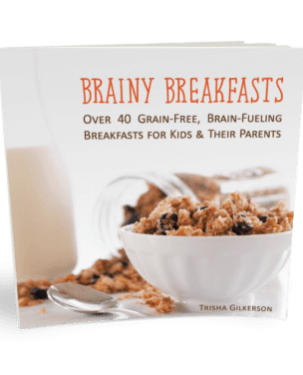
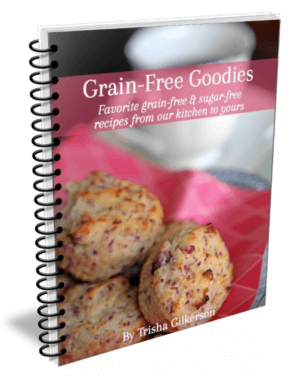
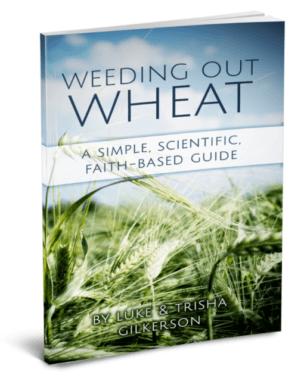
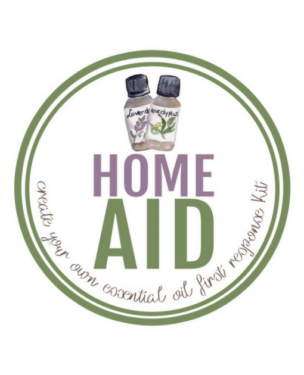

Thanks for offering the link up. Well written arguments, but I don’t buy them. Bread is the staff of life and will continue to be found in moderation in my home. But I am really good at cooking for my celiac friend too! Glad that you all have found a way to feel your best.
Thanks for linking up Janine! I always enjoy reading your posts :). Hopefully, you’ll find the rest of my posts interesting this month. I know some Christians have trouble with going gluten-free because of all of the references in the Bible to bread and I’m going to talk about that too!
I know some people can tolerate wheat more than others. Despite that fact, I still really believe most (if not all) people can benefit health-wise from cutting out wheat (at least modern-wheat). This is based on both scientific and anecdotal evidence.
Have a great evening! 🙂
The wheat of the Bible is not the wheat of today. Scientists have changed it entirely – even the number of chromosomes! We now eat Frankenwheat.
All grains have been genetically modified not just wheat, if you are ill and eat any rice pasta bread cereal and you cut these out of your diet you will benefit hugely. Genetically modified foods alter your DNA also I have been told that it alters your digestive action in your stomach the best way around this is to source heirloom seeds and grow your own in a community or just on your own, research a guy called Tony Pantalleresco he has a youtube account called herbsplusbeadworks and is heavily involved in the industry and seems to get some genuine information which is not easy to source.
also if you drink some cranberry juice the phytates have nothing to bind to they then act as an antioxidant.
Thanks so much for hosting! We’ve cut out most of our wheat, but not all of it. We still eat sourdough and sprouted bread. 🙂
I am SO excited that this is the monthly WW topic! 🙂 Especially since I have just recently given up wheat myself! Looking forward to linking up later, and I have a recipe to share this week. (I was trying to follow a recipe, messed it up bad, then had to recover it, and it came out alright. So it’s my own creation of sorts LOL 😉 )
Looking forward to checking out your recipe! I hope you find some of the posts insightful this month 🙂
I used to have very painful stomachaches at least once a week until I cut out wheat. I couldn’t believe that my favorite food was causing me so much pain. Now I’m glad I cut wheat out of my diet. Well….I do still eat it occasionally, and I always regret it! You’d think I would’ve learned my lesson by now!
What are your thoughts on sourdough and sprouted bread? Sprouted bread doesn’t seem to bother me as much.
Stephanie, funny thing is, I didn’t have any stomachaches until AFTER I gave up wheat and then tried to eat some. It seems to get worse the longer I’m away from wheat. It used to be I could have some without any ill effects, but now just a small amount leaves me terrible tummy pains. I guess it’s good, because it keeps me from trying to sneak it back into my food.
I’m going to talk about some of my thoughts on traditionally prepared breads later this month, so you’ll have to stay tuned 🙂
I too am curious where this scientific proof is coming from? Can you help me out?
Thanks!
Hi Scott,
Certainly, just check out the sources I cited – that’s a great start. I cite many more (over 120) in the book I wrote with my husband. Those journal articles would be the first place I’d dig into if you’re looking for some meatier reading 🙂
This is something I have been pondering for some time. My 2 year old has asthma and allergies, both minor not too many flare ups, but I have been thinking about doing the GAPS diet. Right now we eat a lot of wheat because he is allergic to eggs and tree nuts. Hoping you will post some good breakfast and lunch recipes that are easy to make with ingredients that are fairly easy to find and affordable.
Food allergies are tricky! I would probably focus on meats and veggies in the morning. Grains can definitely have a negative impact on asthma and allergies. When I cut wheat out of my oldest sons diet his chronic cough (not bad, just irritating) vanished as did a number of allergy symptoms. The more you are able to reduce the inflammation in his system the better he will feel – sugar is another big offender that it would be good for you to greatly reduce!
Thanks, I really need to look into this.
Excellent! I’ve been attempting an almost wheat free diet since reading the book “Wheat Belly” and I’m happy to see how you approach this subject of great concern. Shared it, and looking forward to reading more . . . Thanks!
I haven’t had the chance to read the book “Wheat Belly” but I’ve heard great things about it! My series probably won’t tell you anything new, I’m guessing. But, hopefully my hope is that I’m able to distill some of the science down so everyone can understand it 🙂
Thank you for hosting!
I grow food in my oatmeal bowls. Really, I do! I shared a post on regrowing food in water that explains it all. I also shared a recipe for toasted coconut banana sourdough pancakes… it’ll make you wish you had a pina colada in hand to match! ~Tiffany
Growing food in oatmeal bowls… I’m intrigued!
I personally don’t think the wheat is the main problem, but the processes it goes through being used for mainstream food. I believe that wheat in it’s natural form is probably much healthier than processed form. I eat a whole foods, plant based diet and eat sprouted grain bread and haven’t had any issues with digestion since changing the way I eat.
I’m looking forward to reading your posts, especially your post on traditional preparation. Within the last two months, I’ve started making soaked bread for our family. The biggest drawback is that I have to remember the day before to put the starter and sponge together, but so far, it’s worked out well.
if you wait long enough wheat will be really good for you
I have a great may doubts about that. I know some things go full circle, but the mutagenic breeding (breeding the presence of irradiation and/or chemicals) that wheat has gone through has completely changed the wheat that we eat today. Add that to the fact that few people use traditional preparation methods… it really is quite a harmful substance to consume.
I know it seems that the trends change over time, but it seems to me if we go back to eating real, whole foods that really will provide our bodies with the best nutrients. Thank you for stopping by!
I just had to comment as I have been on your webpage for a few hours now haha Thanks so much for all the info and articles that are easy to understand and offer great tips. I have been on the band wagon and fell off twice. I convinced myself that because I hadn’t been tested, no one could prove I had it, so I stayed in a comfy state on denial. In the process of being diagnosed with Menieres disease I found out that I had a positive celiac positive endoscopy and then blood test to be certain. As I have two other much more severe disabilities (Syringomyelia t6-10 and severe ehlers danlos syndrome ). I am trying to get back on the band wagon and stay on this time! I think your web page is going to do just that, help me! So thanks in advance 🙂
When I quit eating things with wheat in them,my health,my attitude,my energy came back to me!! All that time thinking wheat was so good for u? That’s what they want u to think! Its a commodity.farmers won’t make money ?. Don’t get sucked in. Get off wheat!!!!
Glad to hear you started feeling better when you cut wheat! 🙂
According to this link, the transgenic crop was a fluke. The impression you give in your writing, is that the current wheat( I would assume you mean dwarf wheat) is transgenic.
http://www.nature.com/news/hunt-for-mystery-gm-wheat-hots-up-1.13392
I didn’t say anything about transgenic wheat, it wasn’t at all part of this post. Could you clarify where you think I was referring to it? I’d like to edit the post so it doesn’t cause confusion. Thanks!
I personally think people who don’t don’t have wheat and gluten intolerance shoudn’t go gluten free
Sorry just one don’t